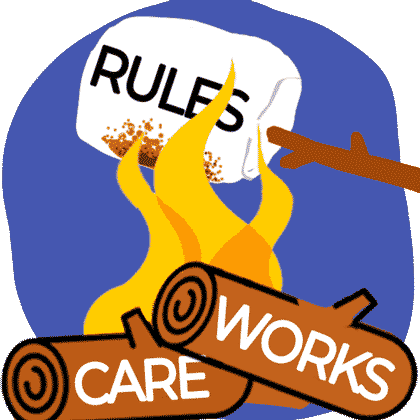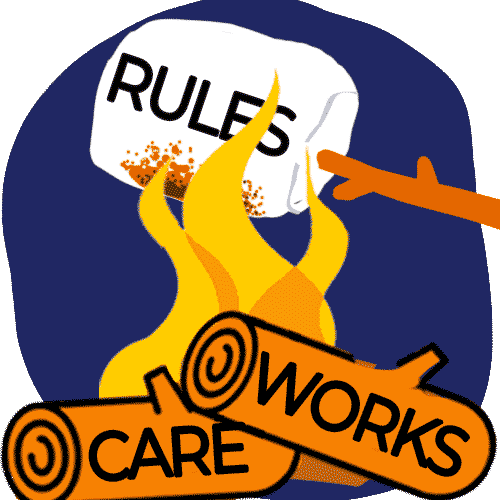Sedgwick: Non-Compliant Bulk Payments From Careworks (Part 1)

In California, claims administrators—and apparently, Preferred Provider Organizations (PPOs)—are effectively free to create their own payment rules.
A provider submitted a total of 199 electronic bills (e-bills) to Sedgwick, QBE North American, National Interstate Insurance, and AmeriTrust Group. Subsequently, the provider received three checks as payment from Careworks, a managed care organization owned by Sedgwick, specializing in workers’ comp cost containment.
In addition to inexplicably coming from Careworks instead of the claims administrators, every payment failed to comply with California workers’ comp laws and regulations:
- All payments were untimely per California Labor Code Section 4603.4
- No electronic Explanations of Review (e-EORs) were issued
- The paper EORs failed to contain the required data per CA regulations.
The three paper EORs total hundreds of pages—all of which require manual uploading at a significant cost in administrative time and resources.
At daisyBill’s instruction, the provider is filing formal Audit Complaints with the California Division of Workers’ Compensation (CA DWC) for each bill. While the CA DWC has a long history of inaction in response to provider complaints, we urge the agency to impose appropriate consequences for Sedgwick failing to comply with Labor Code and to investigate whether there is a violation of Insurance Code.
Careworks Bulk-Pays Multiple Claims Admins’ Bills
A daisyCollect provider received three large checks from Careworks, each purporting to pay dozens of separate bills from multiple claims administrators. Below is an image of one of the checks for over $13,000 and a list of the bills it covers.
As we’ll explore in a future article, the provider does not have a contract with Careworks which allows Careworks to discount these bills, adding another layer of confusion and impropriety.
Furthermore, all of these payments violate the following state requirements:
-
Late Payment: Payment for bills that providers submit electronically (e-bills) is due within 15 working days of the claims administrator receiving the bill. For the bills in question, the bulk payment arrived beyond that deadline.
-
e-EORs (835s) Missing: California Labor Code Section 4603.3, the CA DWC requires claims administrators to send providers electronic Explanations of Review (e-EORs) in response to e-bills (though conveniently for claims administrators, the CA DWC consistently fails to enforce this requirement). These claims administrators sent only paper EORs.
- EOR Missing Information: The CA DWC Medical Billing and Payment Guide requires certain identifiers on every EOR; the claims administrators failed to include the mandatory Patient Control Number on the EORs for these bills.
The screenshot from daisyBill shows that the Careworks payment for a Sedgwick Amazon bill was late, that the EOR was non-electronic, and that the Patient Control Number was missing.
Provider Files 199 Audit Complaints
daisyBill instructed the provider to submit 199 formal Audit Complaints with the CA DWC, each reporting the three violations noted above.
Below are the numbers of audit complaints the provider is filing individually against each claims administrator. To the surprise of no one, Sedgwick is the largest offender, with only a handful of complaints against other claims administrators. Again, it remains unclear how Careworks bulk pays bills across multiple claims administrators and self-insured employers.
Claims Administrator |
Audit Complaints Filed |
Sedgwick Claims Management Services, Inc. |
187 |
QBE North American |
5 |
National Interstate Insurance |
4 |
AmeriTrust Group, Inc. |
3 |
Total |
199 |
Below is an example of an Audit Complaint the provider submitted directly to the DWC. Our team will track the CA DWC’s responses (assuming the CA DWC actually responds).
Paying through a non-contracted third party, late, and with paper EORs deprives providers of timely reimbursement and drains administrative resources from practices. Will the CA DWC take action to defend providers’ rights? History indicates that it won’t—but we can hope.
Correction (July 1, 2025):
This post previously cited Insurance Code §2509.1(d) as prohibiting fund commingling. That citation was incorrect; we found no specific legal prohibition on commingling client claims funds in this context.
daisyCollect deals with all the hassles of workers’ comp billing—so you don’t have to. Learn more about what we offer by clicking below.
LEARN MORE: DAISYCOLLECT
DaisyBill provides content as an insightful service to its readers and clients. It does not offer legal advice and cannot guarantee the accuracy or suitability of its content for a particular purpose.



